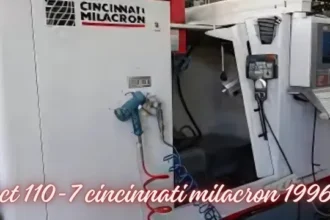Most homeowners don’t think about their garage door—until it stops working. Whether it won’t open, makes strange noises, or moves unevenly, garage door problems can disrupt your routine and compromise your home’s security. Recognizing and addressing common issues early can save you time and prevent expensive repairs. For homeowners, prompt attention and help from professionals in garage door repair in Sandy are key to keeping your system safe and efficient.
The Door Won’t Open or Close Completely
One of the most common issues homeowners face is a garage door that doesn’t open or close all the way. This could be due to several reasons:
- Blocked Sensors: Modern garage doors are equipped with safety sensors that detect obstacles. If these sensors are misaligned or obstructed by dirt, debris, or even cobwebs, the door may refuse to close. Cleaning the sensors and ensuring they are properly aligned often resolves the issue.
- Limit Settings: The door opener has settings that determine how far the door travels. If these limits are off, the door might not open or close properly. Adjusting these settings carefully can fix the problem.
- Track Obstructions: Small objects or debris in the tracks can prevent smooth operation. Inspect and remove any visible blockages to restore movement.
If the door still doesn’t function correctly after these checks, it’s best to contact a garage door repair specialist to inspect the motor or wiring.
The Garage Door Makes Strange Noises
Unusual sounds like grinding, squeaking, or banging are clear signs that something isn’t right. Different noises often indicate specific issues:
- Squeaking or Screeching: Usually caused by lack of lubrication on moving parts such as rollers, hinges, or springs. Applying a silicone-based lubricant can minimize friction and eliminate the sound.
- Grinding: This may suggest worn-out rollers or misaligned tracks. These components need professional inspection to ensure they are safe and functional.
- Banging or Popping: These noises often signal a problem with the torsion springs. Since these parts are under high tension, attempting to fix them without proper tools and experience can be dangerous.
Regular maintenance can help prevent noise-related issues. Homeowners should schedule periodic check-ups to keep their doors quiet and efficient.
The Door Moves Unevenly or Shakes
If your garage door appears to jerk, shake, or tilt as it opens or closes, this may indicate imbalanced tension or worn components.
- Spring Imbalance: The springs are responsible for supporting the door’s weight. If one side weakens, the door can become uneven or get stuck.
- Loose Hardware: Screws, bolts, and hinges can loosen over time due to vibration and use. Tightening them can restore smooth movement.
- Worn Rollers or Tracks: Damaged rollers or misaligned tracks can cause uneven movement. These parts may need replacement to ensure the door glides effortlessly.
For lasting results, professional technicians specializing in garage door repair can recalibrate the springs and replace any damaged hardware safely.
The Remote or Keypad Doesn’t Work
When your garage door remote or keypad stops functioning, it can be frustrating—but often, the solution is simple.
- Check the Batteries: Dead or weak batteries are the most common cause. Replacing them usually restores operation.
- Reprogram the Remote: Occasionally, the connection between the remote and the opener can be lost. Reprogramming the device based on your opener’s manual often fixes this issue.
- Inspect the Antenna: Ensure the opener’s antenna is hanging downward and not obstructed. Dust or interference can affect signal reception.
If these steps don’t work, an electrical or circuit board issue likely requires professional service. Rely on garage door experts to safely resolve remote malfunctions.
The Door Reverses Unexpectedly
A garage door reversing mid-way while closing often signals a safety system issue. Modern systems use auto-reverse mechanisms to prevent accidents. Common causes include:
- Sensor Misalignment: Even a small shift in the photo-eye sensors can trigger the reverse function. Realigning them at the same height usually resolves the issue.
- Dirty Sensors: Dust or cobwebs can block the sensors’ signal. Cleaning them gently with a soft cloth ensures accurate detection.
- Worn Springs or Tracks: When mechanical resistance increases due to damage, the system may interpret it as an obstacle and reverse.
If the problem persists, professional servicing ensures the door’s safety systems are correctly calibrated.
Preventive Maintenance Tips
Preventive care is the best way to avoid frequent repairs. Here are a few simple maintenance tips:
- Lubricate moving parts every few months to minimize wear.
- Inspect cables and springs for signs of fraying or rust.
- Test the auto-reverse function periodically for safety.
- Keep the tracks clean and free from debris.
Homeowners who schedule regular tune-ups with a garage door repair provider can extend their system’s lifespan and maintain reliable performance year-round.
Conclusion
Garage door issues are frustrating, but often preventable with regular maintenance and timely action. Knowing common problems and when to call a professional can save you money and keep your door running smoothly for years. Trusted garage door repair professionals offer expert diagnosis, safe solutions, and peace of mind. Consistent maintenance and prompt attention to issues ensure your home remains secure and your garage door performs optimally.

















